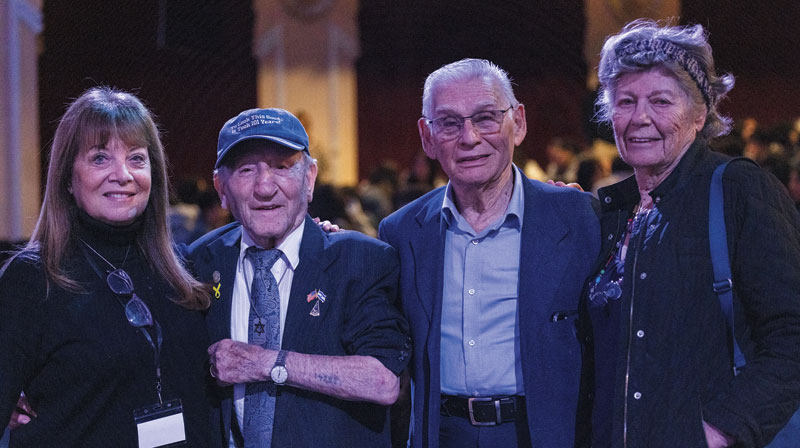Memorial Day Sonnet: Thanks But No Thanks
A poem by Alicia Ostriker.
Origami, the traditional Japanese art of folding paper, might seem like little more than a childhood pastime.
I rarely pay attention to walls when I’m in a synagogue. I’m usually more focused on the people, the prayers and the rabbi’s sermon.
Sitting on a recent day in the light filtering through a large multi-paned, stained-glass window of the Memorial Library — a branch of the Los Angeles Public Library located on Olympic Boulevard across from L.A. High School — I noticed a list of 20 names ornately worked into the glass.
A May 18 protest at UC Irvine, staged by Students for Justice in Palestine (SJP) to oppose the screening of a film about soldiers in the Israel Defense Forces (IDF), has been swiftly and strongly denounced by the university’s chancellor, Howard Gillman.\n
The tumultuous personal and professional life of lyricist Al Dubin, who, with composer Harry Warren, wrote a legion of hit songs for films during the 1930s, is depicted in the new musical “I Only Have Eyes for You,” now running at the Montalban Theatre in Hollywood.
Every May, people across the country fan out and beautify schools, plant neighborhood gardens and feed the homeless, often with the words “Big Sunday” emblazoned on T-shirts while they perform these mitzvot.
On a recent Thursday evening, inside a children’s library in the basement of Valley Beth Shalom (VBS) in Encino, 10 women and three men, all grieving the recent loss of a spouse, sat in a circle around a box of tissues.
A very old word, quite common in the Bible and in other Semitic languages, including brit melaH “fellowship over a meal”* (Numbers 18:19); a sacred offering to God (Leviticus 2:13); and the custom of adding salt after the ha-Motsi’ grace over bread.
\”Zionism” is a word that has come to mean many different things to different people, which is why veteran foreign correspondent Milton Viorst decided to take a fresh look at the origins and the destiny of the Zionist project in “Zionism: The Birth and Transformation of an Ideal” (Thomas Dunne Books/St. Martin’s Press).





 More news and opinions than at a Shabbat dinner, right in your inbox.
More news and opinions than at a Shabbat dinner, right in your inbox.